Easy Color Words Worksheets for Ages 6-9
5 filtered results
-
From - To
Discover our "Easy Color Words Worksheets for Ages 6-9," designed to make learning fun and engaging! These worksheets help children enhance their vocabulary by exploring color words through vibrant visuals and interactive activities. Perfect for young learners, these resources include tracing, matching, and coloring exercises that reinforce color recognition and spelling. Whether used in the classroom or at home, these worksheets cater to various learning styles, ensuring that every child will enjoy mastering color vocabulary. Encourage creativity and language development in a delightful way. Download now to give your child the essential skills they need while having a blast!
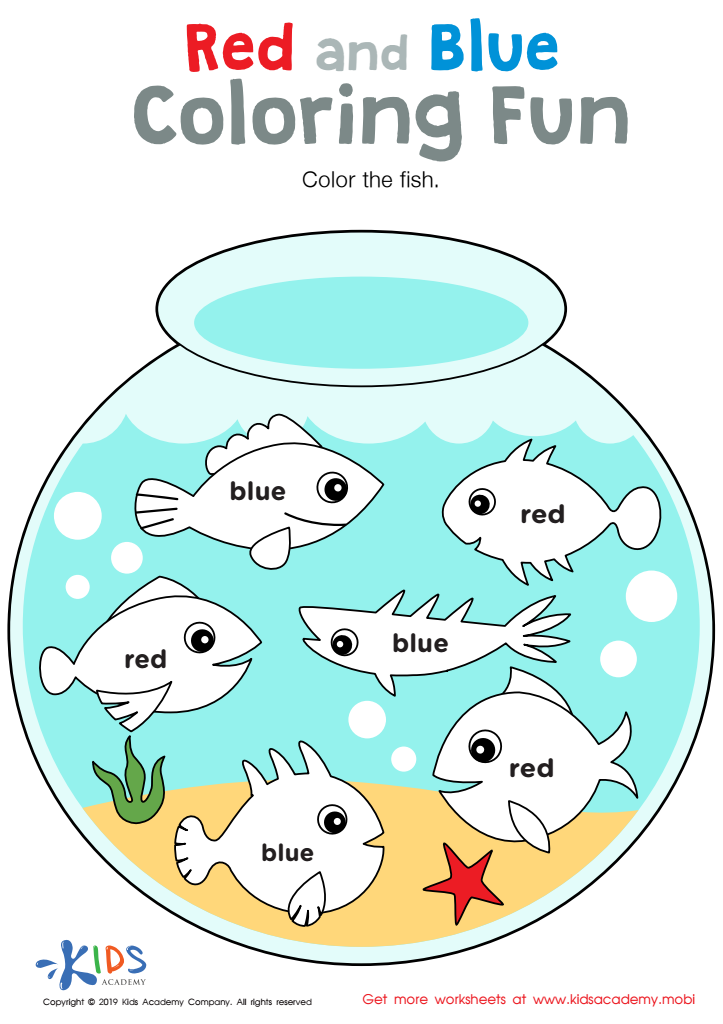

Red and Blue Coloring Fun Worksheet
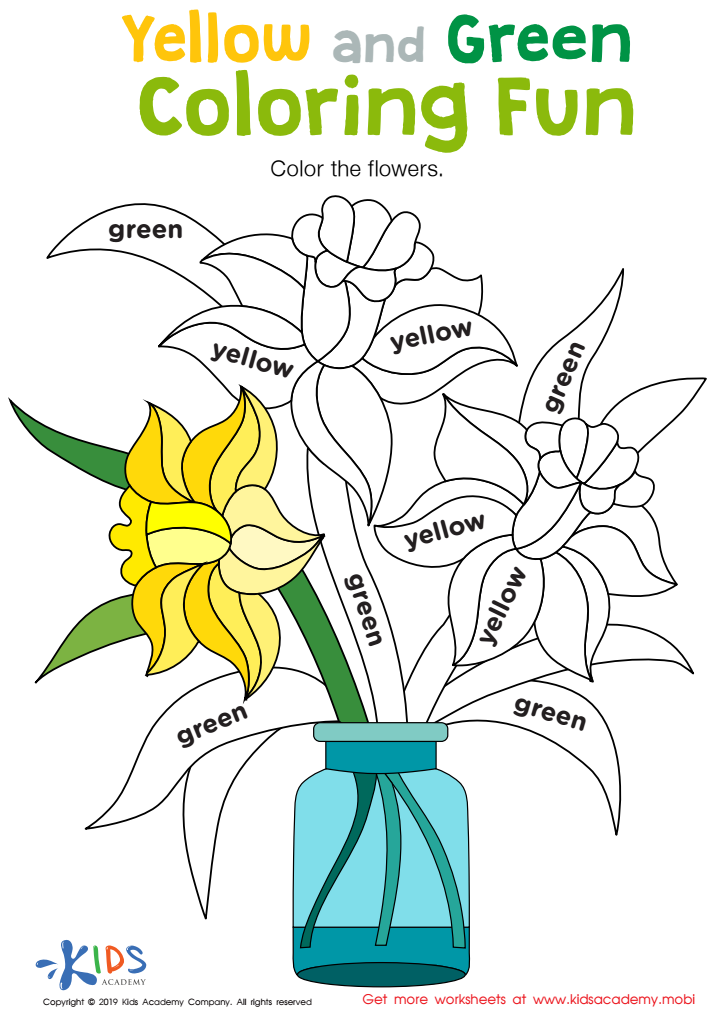

Yellow and Green Coloring Fun Worksheet
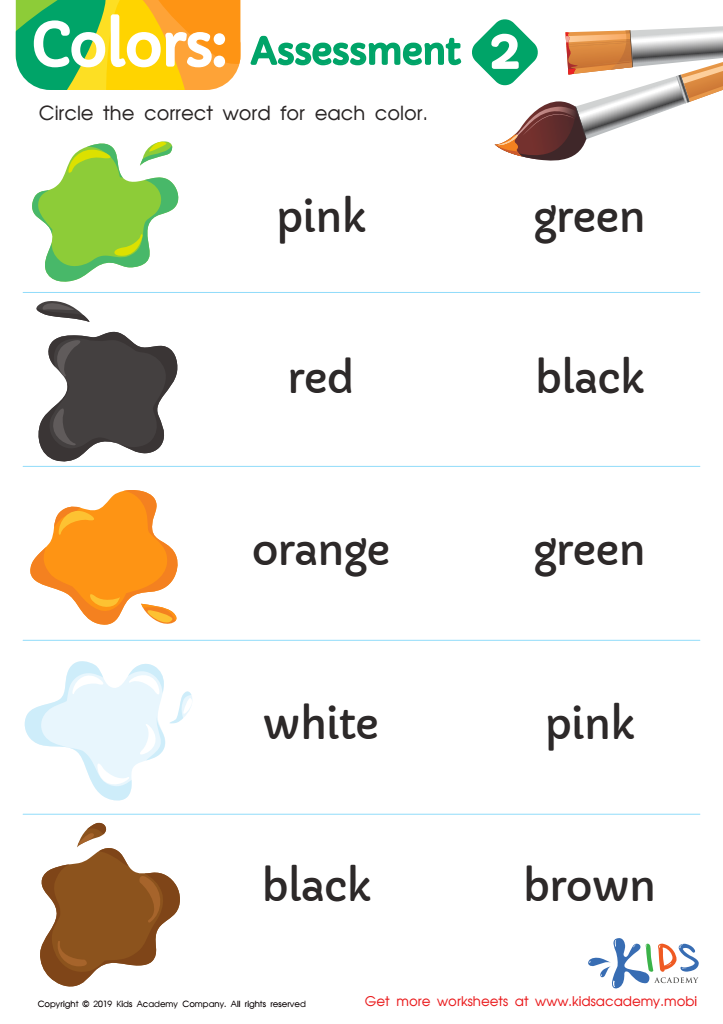

Colors: Assessment 2 Worksheet
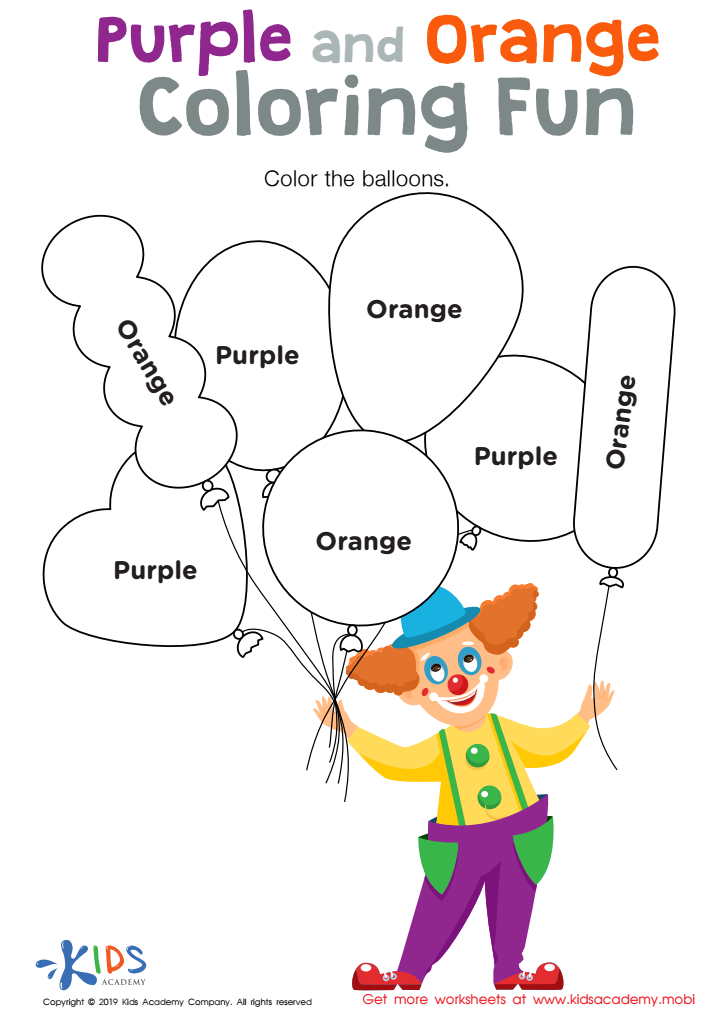

Purple and Orange Coloring Fun Worksheet
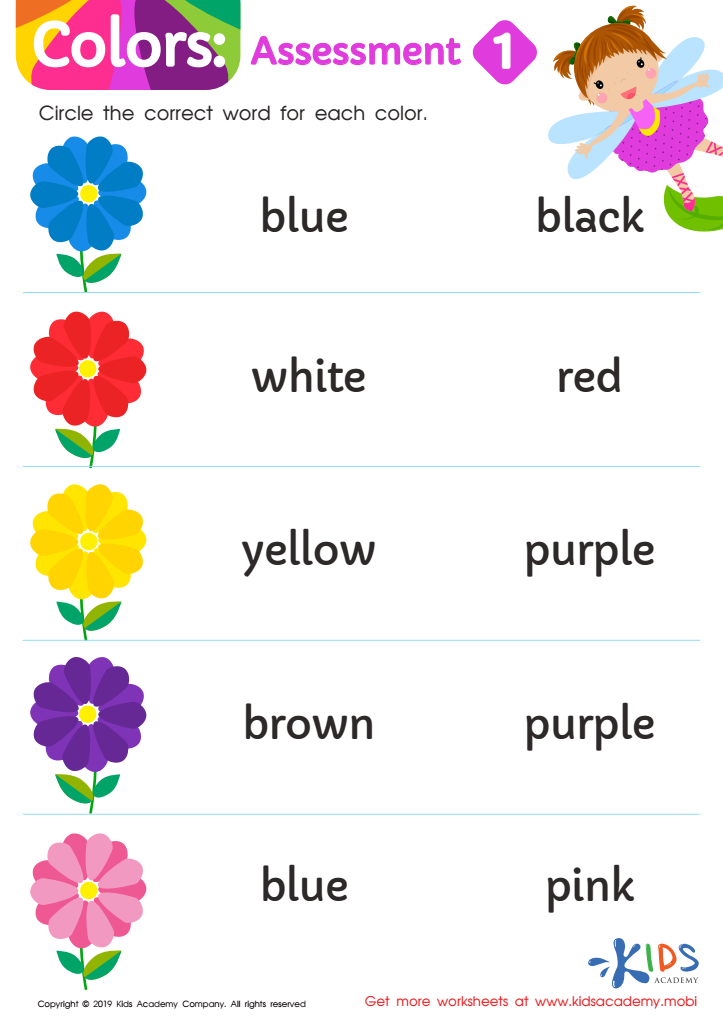

Colors: Assessment 1 Worksheet
Parents and teachers should care about Easy Color Words for Ages 6-9 because it serves as a crucial building block in children's literacy development. At this age, children are expanding their vocabulary and developing essential reading skills. Introducing them to color words not only makes learning engaging but also fosters creativity as they begin to relate colors to emotions, objects, and environments.
Color words are foundational, often among the first adjectives children learn. This knowledge enhances their ability to describe their world, improving both their verbal and written expression. Moreover, understanding color words enriches children's comprehension skills, as they encounter relatable contexts in books, art, and everyday experiences.
From a cognitive perspective, learning color words can promote sensory development and categorization skills, enhancing their critical thinking abilities. The visual nature of color helps reinforce memory, making it easier for children to recall these words.
For teachers, incorporating easy color words into lessons can lead to lively classroom discussions, art projects, and games, making the learning process more dynamic and enjoyable. In essence, fostering a foundation of easy color words leads to confident communicators, imaginative thinkers, and a love for learning that benefits children beyond their formative years.
 Assign to My Students
Assign to My Students










